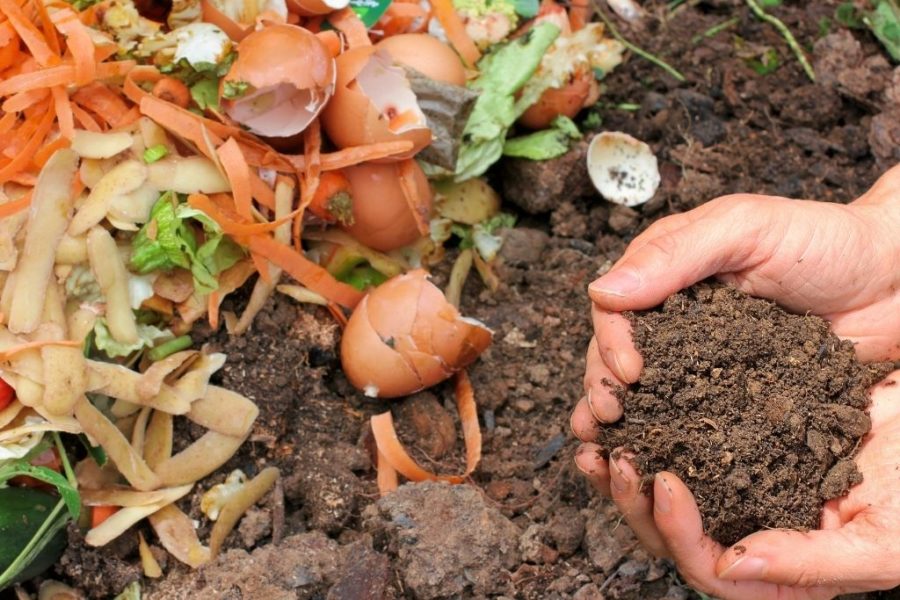
Every year, we throw away almost one-third of the food we produce. Yet, so many people around the world do not have enough food to eat on a daily basis. In fact, almost 800 million people are undernourished. Food waste is a huge social, economic, and environmental problem that needs to be eradicated. For this reason, it is important that we educate ourselves properly about this issue and think of ways to reduce our food waste. We prepared a short guide packed with advice on how you can do your part.
__
Food waste is a huge issue that affects everyone around the globe and contributes to the larger issue of climate change. It has been estimated that food waste accounts for a third of all human-caused emissions and generates 8% of greenhouse gases annually.
Tackling food waste is necessary now more than ever. Everyone can be a part of the solution, from large corporations to small communities. If businesses redirect excess food to communities with limited access to it, they can save money and reduce their methane emissions at the same time. Educating the public about the benefits of reducing food waste will also encourage businesses and consumers to monitor their waste more closely.
Here is a list of ways in which you can reduce your food waste at home starting today!
1. Start a Compost Bin
Learning the benefits of composting is a great way to start. Compost is a type of soil fertiliser made from food waste and you can easily start producing it by simply composting all your uneaten food, from apple cores and banana peels to vegetable scraps and eggshells. To help the waste rot and turn into compost – a process which takes anywhere between 3 to 6 months – you can water it from time to time. Through composting, you will not only reduce food waste but also provide the soil with rich nutrients that help plants grow.
2. Do Not Throw Away Leftovers Straight Away
You don’t have to throw away whatever is left on your plate straight away. Not only you may want to eat your leftovers the next day but you can also use them to create some quick recipes. If you have some extra grains or vegetables, you can easily whip up delicious fried rice, a stir-fry, or even a tasty vegetarian curry to take to school or enjoy with your family the next day.
3. ‘Ugly’ Produce Can Be Tasty!
Despite what many people believe, ‘ugly’ produce can still be eaten and most of the time, it tastes just the same. A banana that is turning brown or an apple with an unusual shape are perfectly fine to eat! Most of the time, grocery stores will even sell less aesthetically pleasing food at a cheaper price to encourage people to purchase it. By choosing it, you might not only save money but you will also prevent food waste.
4. Get The Portions Right
Whenever you are at a buffet or a birthday party, it is always tempting to feel your plate with all the delicious food in front of you. While no one stops you from enjoying it, remember to be mindful when you put food on your plate because whatever is left over will most likely be thrown away. Make sure you grab only what you can actually eat as you cannot predict when you are going to start feeling full. And if you still feel hungry after you are done, go for a second round!
5. Learn To Store Food Properly
Not everyone knows what the best ways to store food are. If stored improperly, food is going to over-ripe or rotten before you can actually consume it. First of all, it is a good idea to separate raw from cooked food in the fridge and always place the latter above the raw produce to reduce the risk of contamination. Also, make sure to store cooked food in air-tight containers to avoid spoilage. Lastly, if you live in humid climates, you should keep your fresh produce like fruit and vegetables in the refrigerator to prevent it from over-ripening too quickly. Understanding where different food thrives better and lasts longer will not only help you save money but it is also a great and often underrated way to decrease food waste!
6. Take a Family Food Waste Challenge
To make things more interesting, you can always get your friends and family involved. A good way to raise their awareness about food waste is by getting them involved in a food challenge. You can start by measuring how much food gets wasted every day and challenge each other to see who can produce the least amount. Another good way is to set a family goal, such as reducing overall waste by 25% for a week, and reward yourselves with a fun activity if you manage to reach your target.
7. Donate to Food Banks
While reducing food waste is a great way to start, there is also a more direct way in which you can help your community. Most cities have charities or food banks that accept unopened or unused food items which they will donate to people in need. If you are from the US, you can find your local food bank here.